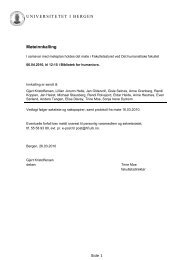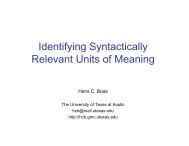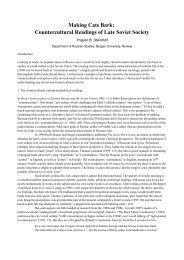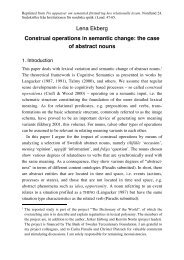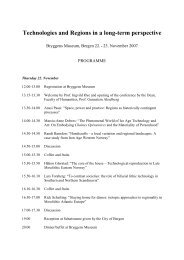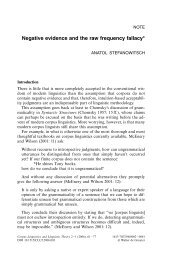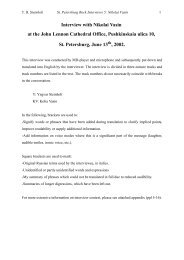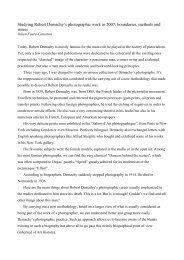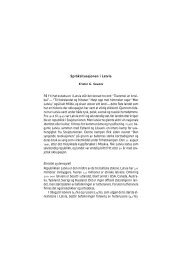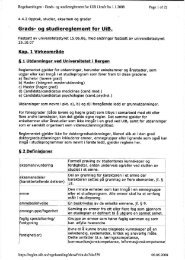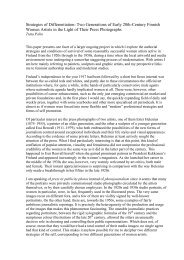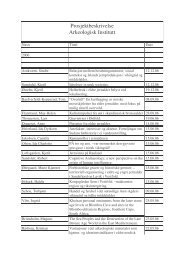THE BOOK OF POEMS IN TWENTIETH-CENTURY ... - TopReferat
THE BOOK OF POEMS IN TWENTIETH-CENTURY ... - TopReferat
THE BOOK OF POEMS IN TWENTIETH-CENTURY ... - TopReferat
You also want an ePaper? Increase the reach of your titles
YUMPU automatically turns print PDFs into web optimized ePapers that Google loves.
быть мудрым в веке сем, будь безумным. 199<br />
The list of epigraphs which follows can<br />
be read as a highly personalized, "mad" set of guidelines or instructions for the book.<br />
In typical fashion, perhaps true to her autodidactic background, Shvarts takes the<br />
epigraphs from a variety of different sources and traditions: two from the bible (#1 and<br />
#4), two from apocryphal works (#2 and #3), one from a Rilke short story (#5), two<br />
apparently from Buddhist texts (#6 and #7), and the final three from poetry by her<br />
Russian contemporaries. They are not linked in any obvious way—in fact, when read in<br />
succession they seem more confusing than enlightening. In many cases the sources are<br />
not widely known (the religious poet Burikhin, the obscure Безумный Линь 200 ) and<br />
appear to be Shvarts's personal muses. She cites them with little or no context, often<br />
eliding critical information that would make them more accessible. For example, the<br />
second epigraph, "Да раздражу глубину сердечную" is cited from the "Lives of the<br />
Fathers" (из Патерика), but it is not clear to which Paterik it refers, who is speaking, or<br />
what is being discussed. It does, however, help prepare the reader for the disconcerting<br />
poetry which will follow—poetry which will agitate the reader's heart as well as<br />
strengthen it, both potential meanings of the verb раздражать. Again, Shvarts<br />
emphasizes the heart as the center of spiritual and physical torment and growth.<br />
The third epigraph is in the form of a riddle and solution: Иоанн рече: Что есть<br />
гроб хождаше, а в нем мертвец пояше? Василий рече: Кит в море хождаше, а Иона<br />
в чреве песнь Богу пояше. In the following epigraphs, no such resolution is provided.<br />
The fifth epigraph, like the third, begins with a question, «Но с чем же может<br />
199 The notion that madness can lead to spiritual wisdom recalls the tradition of holy fools in Russia.<br />
200 I have not been able to find a definitive source for the seventh epigraph attributed to "Безумный Линь."<br />
When asked via email, Shvarts wrote that Lin' was apparently a Daoist poet and thinker, but she could no<br />
longer recall where the citation came from (private email correspondence, August 16, 2002).<br />
149



